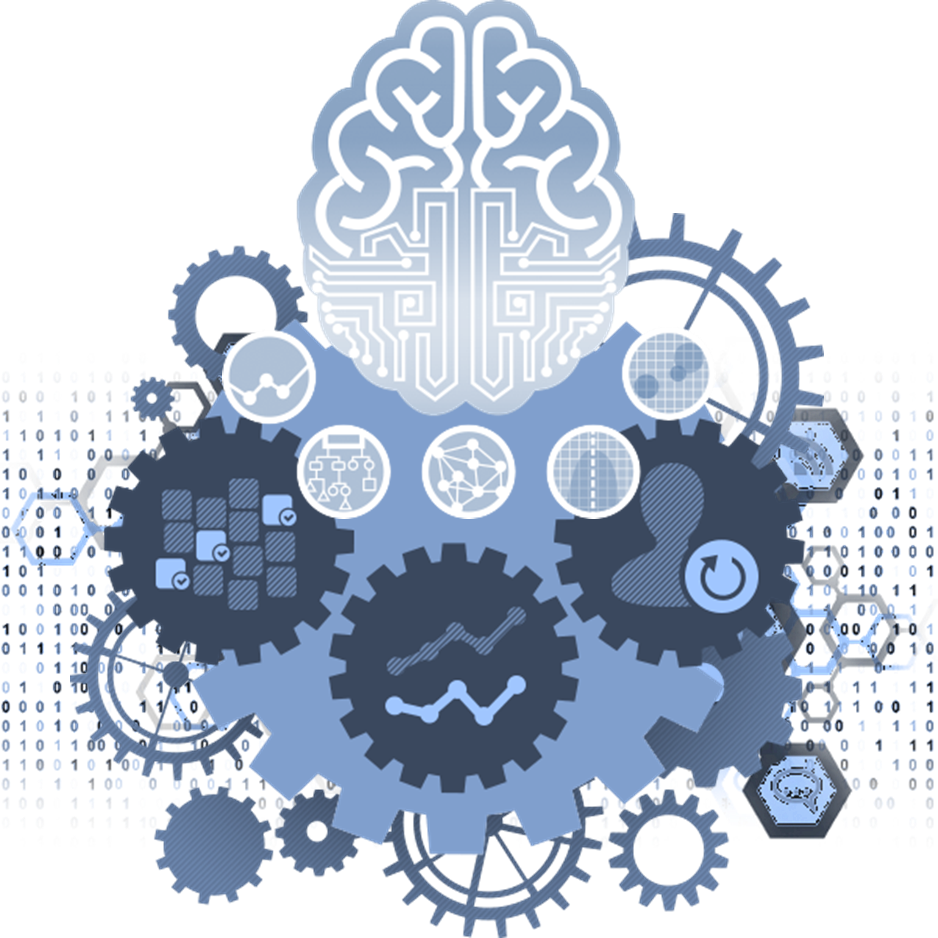The term “cognitive technologies” is unlikely to replace the more common phrase “artificial intelligence,” despite the fact it better denotes there are a multitude of technologies that rest under the AI umbrella. “Perhaps the greatest promise offered to businesses today stems from cognitive computing technology,” write staff members from Ohio University. “These systems can process unstructured information in ways like humans, but much faster. They understand language patterns and sensory inputs, including text, pictures, and audio. The systems are already improving employee and customer experiences, streamlining new product innovation, enabling health care providers to spend more time with patients, and even saving lives by identifying customer safety issues before they cause accidents. Cognitive computing, also known as AI or smart machines, will impact the economy across many industries.”[1]
In today’s rapidly changing and often confusing business landscape, there is another reason cognitive technologies are becoming a must-have capability for many companies — cognitive technologies can provide insights in ambiguous situations. The now-defunct Cognitive Computing Consortium explained, “Cognitive computing makes a new class of problems computable. It addresses complex situations that are characterized by ambiguity and uncertainty; in other words it handles human kinds of problems.”[2] The Consortium added:
“In these dynamic, information-rich, and shifting situations, data tends to change frequently, and it is often conflicting. The goals of users evolve as they learn more and redefine their objectives. To respond to the fluid nature of users’ understanding of their problems, the cognitive computing system offers a synthesis not just of information sources but of influences, contexts, and insights. To do this, systems often need to weigh conflicting evidence and suggest an answer that is ‘best’ rather than ‘right’. Cognitive computing systems make context computable. They identify and extract context features such as hour, location, task, history or profile to present an information set that is appropriate for an individual or for a dependent application engaged in a specific process at a specific time and place. They provide machine-aided serendipity by wading through massive collections of diverse information to find patterns and then apply those patterns to respond to the needs of the moment.”
Why cognitive technologies are becoming a must-have for business
The staff at CIO Review writes, “Today’s businesses must deal with complexity and vast data while making decisions faster than at any previous time in history. Fortunately, cognitive technologies are maturing to help.”[3] The staff continues, “Cognitive technologies like computer vision, machine learning, and natural language processing use artificial intelligence to perform tasks that only humans could perform. Cognitive technologies allow organizations to break prevailing trade-offs between speed, cost, and quality.” I would have substituted “advanced analytics” for “artificial intelligence,” but the point they are trying to make remains valid. One of the most valuable things cognitive technologies can do for an organization is help integrate data so that everyone is working from a “single truth” knowledge base. Corporate alignment is difficult, if not impossible, when everyone is working from a different set of data.
Naveen Joshi, a Director at Allerin, likes a term coined by Cisco for corporate alignment efforts: “cognitive collaboration.” He writes, “Cognitive collaboration will enable employers to improve workplace productivity, foster teamwork, and improve communication.”[4] He adds, “Workplaces are getting larger and the workflows, complex. Enterprises, therefore, need to leverage technologies to ease the work pressure employees feel in the current work atmosphere. One way of achieving that is through team building. And many businesses have already realized the importance of introducing modern technologies such as cognitive collaboration to achieve it.”
Cognitive technologies in a changing business landscape
Just because someone says cognitive technologies are a must-have for businesses, they shouldn’t be acquired without good reason. Ed Burns (@EdBurnsTT), Executive Editor at TechTarget, reiterates what business executives should already know about implementing new technologies — make sure you can make a business case for implementing them.[5] He quotes Hadley Reynolds, managing director and co-founder of the Cognitive Computing Consortium, who stated, “A lot of people are looking at cognitive computing as a bright, shining object that you can apply to anything, and problems will go away. But what we hear daily is that, if you don’t have a very good idea of what you’re trying to accomplish with cognitive projects, whatever efforts you make are likely to end in failure.” One of the strongest business cases that can be made for implementing cognitive technologies is improved decision-making.
Vikram Singh observes, “Cognitive Computing has brought the power of Artificial Intelligence to enterprises across the globe, letting them make better decisions and that too, at a lightning-fast pace.”[6] Decision-making lies at the heart of every business and, in a rapidly changing business environment, making good decisions is critical to survival. Bain analysts, Michael C. Mankins and Lori Sherer (@lorisherer), assert if you can improve a company’s decision making you can dramatically improve its bottom line. They explain, “The best way to understand any company’s operations is to view them as a series of decisions.”[7] They add, “We know from extensive research that decisions matter — a lot. Companies that make better decisions, make them faster and execute them more effectively than rivals nearly always turn in better financial performance. Not surprisingly, companies that employ advanced analytics to improve decision making and execution have the results to show for it.”
As President and CEO of a cognitive computing firm, you won’t be surprised to learn I believe cognitive computing can greatly improve decision-making. The Enterra Cognitive Core™, a system that can Sense, Think, Act, and Learn®, is primarily aimed at helping businesses make better decisions. During the pandemic, we have witnessed companies scrambling to understand what the future may look like, how consumers are responding, and how they may behave in the months ahead. Looking to the past is no help. Because cognitive computing systems can gather, integrate, and analyze a wide array of near-real-time data, companies can be better equipped to deal with paradigm shifts.
Concluding thoughts
The CIO Review staff concludes, “Understanding how to gain maximum benefits from cognitive technologies requires a careful analysis of an organization’s processes, data, talent model, and market. For most organizations, cognitive technologies will restructure work and make it more efficient. Despite all the challenges, the benefits of cognitive technology cannot be overlooked.” The Cognitive Computing Consortium adds, “Cognitive systems will coexist with legacy systems into the indefinite future. Many cognitive systems will build upon today’s IT resources. But the ambition and reach of cognitive computing is fundamentally different. Leaving the model of computer-as-appliance behind, it seeks to bring computing into a closer, fundamental partnership in human endeavors.”
Footnotes
[1] Ohio University Staff, “Cognitive Computing is Changing Business — Are You Ready?” Visualistan, February 2020.
[2] Staff, “Cognitive Computing Definition,” Cognitive Computing Consortium.
[3] Staff, “Why is Cognitive Technology a Must-Have for Businesses?” CIO Review, 4 August 2020.
[4] Naveen Joshi, “Bringing your team together with cognitive computing,” Technology for You, 18 May 2020.
[5] Ed Burns, “What businesses need to know about cognitive computing systems,” TechTarget, 7 April 2017.
[6] Vikram Singh, “Cognitive Computing,” Miniaur, 17 July 2020.
[7] Michael C. Mankins and Lori Sherer, “Creating value through advanced analytics,” Bain Brief, 11 February 2015.





